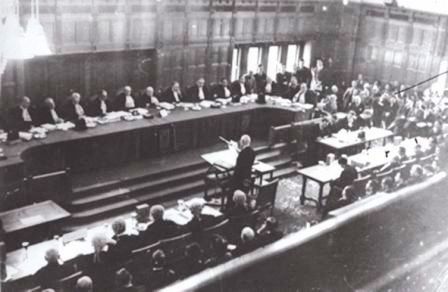
Most of Iran’s oil reserves were in the Persian Gulf area and had been developed by the British Anglo-Iranian Oil company and exported to Britain. For a number of reasons — a growing consciousness of how little Iran was getting from the Anglo-Iranian Oil company (AIOC) for its oil; refusal of AIOC to offer of a ‘50–50% profit sharing deal’ to Iran as Aramco had to Saudi Arabia; anger over Iran’s defeat and occupation by the Allied powers — nationalization of oil was an important and popular issue with “a broad cross-section of the Iranian people.”[On 28 April 1951, the Majlis named Mosaddeq as new prime minister by a vote of 79–12. Aware of Mosaddeq’s rising popularity and political power, the young Shah appointed Mosaddeq to the Premiership. On 1 May, Mosaddeq nationalized the AIOC, cancelling its oil concession due to expire in 1993 and expropriating its assets. The next month a committee of five majlis deputies was sent to Khuzistan to enforce the nationalization. Oil production came to a virtual standstill as British technicians left the country, and Britain imposed a worldwide embargo on the purchase of Iranian oil. In September 1951, Britain froze Iran’s sterling assets and banned export of goods to Iran. It challenged the legality of the oil nationalization and took its case against Iran to the International Court of Justice at The Hague. The court found in Iran’s favor,but the dispute between Iran and the AIOC remained unsettled. Under United States pressure, the AIOC improved its offer to Iran.
Mosaddeq explained his nationalization policy in a 21 June 1951 speech:
Our long years of negotiations with foreign countries… have yielded no results this far. With the oil revenues we could meet our entire budget and combat poverty, disease, and backwardness among our people. Another important consideration is that by the elimination of the power of the British company, we would also eliminate corruption and intrigue, by means of which the internal affairs of our country have been influenced. Once this tutelage has ceased, Iran will have achieved its economic and political independence.
The Iranian state prefers to take over the production of petroleum itself. The company should do nothing else but return its property to the rightful owners. The nationalization law provide that 25% of the net profits on oil be set aside to meet all the legitimate claims of the company for compensation…
It has been asserted abroad that Iran intends to expel the foreign oil experts from the country and then shut down oil installations. Not only is this allegation absurd; it is utter invention…”[






